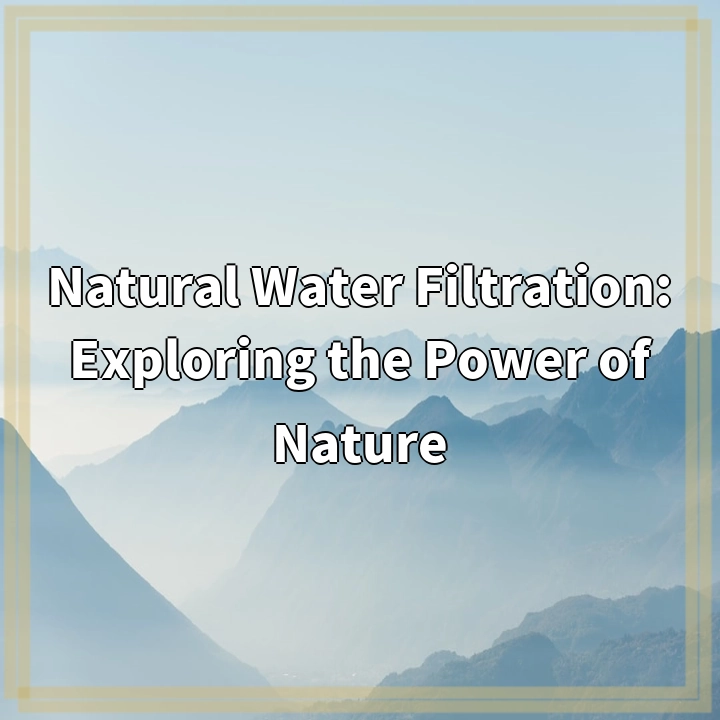Physical Address
304 North Cardinal St.
Dorchester Center, MA 02124
Physical Address
304 North Cardinal St.
Dorchester Center, MA 02124

Natural water filtration is a process that utilizes the power of nature to remove impurities and contaminants from water, resulting in cleaner and safer water sources. Unlike conventional water treatment methods that rely on chemicals and mechanical filtration systems, natural water filtration takes place in ecosystems such as wetlands, rivers, lakes, and forests.
Various mechanisms, including sedimentation, adsorption, biological activity, and chemical transformations, work together in natural water filtration. These processes help cleanse the water and ensure its purity.
While natural water filtration is a remarkable process, it faces several challenges that hinder its effectiveness. These challenges include deforestation and habitat destruction, water contamination and pollution, climate change and altered ecosystems, invasive species, and a lack of conservation and restoration efforts.
Deforestation and habitat destruction disrupt the natural filtration systems found in forests and wetlands. This disruption leads to increased sediment and pollution runoff into water bodies, reducing their ability to naturally filter contaminants.
Water pollution from industrial activities, agricultural runoff, and urban waste poses a significant challenge to natural water filtration. Pollutants such as heavy metals, pesticides, fertilizers, and chemicals overwhelm the natural filtration processes, resulting in contaminated water sources.
The altering climate and ecosystem disturbances, including extreme weather events, disrupt natural water filtration systems. These disturbances introduce new contaminants into water sources and impact the distribution and behavior of key filtration organisms.
Invasive species, which outcompete native species, disrupt the natural balance of ecosystems and hinder water filtration. These species alter the physical and chemical properties of habitats, reducing the efficiency of natural filtration processes.
A lack of conservation and restoration efforts further diminishes the capacity and effectiveness of natural water filtration systems over time.
Addressing the challenges associated with natural water filtration requires a multi-faceted approach that combines conservation efforts, pollution prevention, climate change mitigation, invasive species management, and education and community engagement.
Reforestation and wetland restoration are key solutions to combat deforestation and habitat destruction. By planting trees and restoring wetlands, we can recreate the natural filtration systems and improve water quality.
Implementing pollution prevention and reduction strategies is crucial to combat water contamination and pollution. Strict regulations on industrial activities, sustainable agricultural practices, and effective wastewater treatment processes help reduce the amount of pollutants entering water bodies, allowing natural filtration processes to perform more efficiently.
Mitigating climate change is essential for maintaining the integrity of natural water filtration systems. Reducing greenhouse gas emissions, promoting renewable energy sources, and implementing measures to adapt to the changing climate help preserve ecosystems and ensure their continued ability to filter water effectively.
Eradicating or controlling invasive species restores the natural balance within ecosystems, enhancing the efficiency of natural filtration processes.
Education and community engagement play a vital role in raising awareness about natural water filtration. Involving local communities in monitoring and protecting water sources fosters a sense of responsibility and drives sustainable behaviors.
By implementing these solutions, we can overcome the challenges and protect the vital role that natural water filtration plays in maintaining clean and healthy water sources. Together, we can ensure a sustainable future for both our ecosystems and our communities.
For more information on natural water filtration and its benefits, stay tuned for updates.
If you’re wondering where the article came from!
#